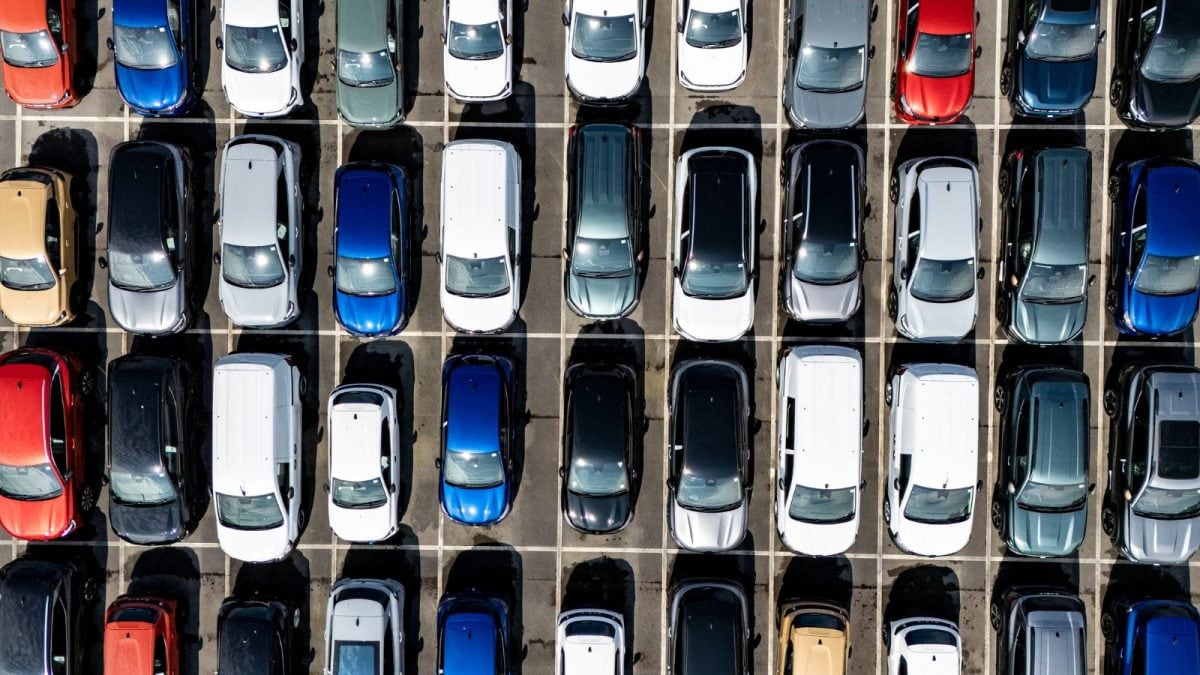Last Updated:
Four-wheel manufacturers like Hyundai, Tata Motors, and Maruti Suzuki saw record sales on Navratri, boosted by GST 2.0 tax cuts and festive demand.

The GST cuts make automobiles more accessible.(Representative Image)
Automobile companies recorded a historic surge in sales on September 22, the first day of Navratri, which also coincided with the rollout of GST 2.0. Several four-wheeler manufacturers reported that they achieved their highest-ever single-day sales performance, driven by festive demand and reduced prices following the new tax regime. Dealers noted that consumer enthusiasm was boosted not only by the auspicious start of Navratri but also by the price cuts on popular car models across segments, making purchases more attractive.
The rollout of GST 2.0 is prompting a strategic shift across India’s automotive value chain, impacting pricing, inventory planning, supply chain flows, and financial operations, according to Saket Mehra, Partner at Grant Thornton Bharat.
“The GST cut restores price competitiveness for small cars, which had declined from around 50% of total passenger vehicle sales a decade ago to 27% today,” Mehra said. Rising costs due to regulatory upgrades in safety and emissions norms had previously dampened demand. He added that used car prices are expected to soften as the price gap between new and pre-owned vehicles narrows, prompting dealers to recalibrate pricing strategies and financing structures.
Whole-time director and COO of Hyundai Tarun Garg said that the company delivered close to 11,000 cars on the first day of Navratri, which is the company’s highest single-day performance in the last five years.
Tata Motors also kicked off the festive season with a bang by delivering 10,000 cars and receiving over 25,000 enquiries on Day 1.
Similarly, Maruti Suzuki also recorded high sales. It sold about 30,000 cars and received 80,000 enquiries on the first day of Navratri.
Vikram Chopra, cars24 India founder, shared that over 5,000 cars being inspected yesterday, the highest in four years and 400% more cars delivered on that day than on any other day.
He said it’s not just about the numbers. ” It’s families driving home their first car. Parents upgrading to something safer. Couples celebrating milestones on wheels,” he added.
The government has slashed taxes on smaller vehicles from 28% to 18%. However, the GST rates have also been rationalised for luxury cars, SUVs and high-end motorbikes to 40%, compared with 28% GST (plus 17-22% compensation cess) earlier.
Petrol, CNG and LPG cars with engine capacity up to 1200cc and length up to 4000 mm will now attract 18% GST, lower from the earlier 28%. Diesel cars with engine capacity up to 1500cc and length up to 4000 mm also get the lower 18% GST rate.
It means that popular hatchbacks and compact sedans, including Maruti Swift, Hyundai i20, Tata Altroz, and Honda Amaze, might become more affordable.
Cars with engine capacity above 1200cc (petrol/CNG/LPG) or above 1500cc (diesel) or length more than 4000 mm will now attract a 40% GST, as compared with 28% (plus 17%-22% compensation cess) earlier. It means that the tax on such vehicles has been reduced to 40%, compared with 45%-50%.
It covers bigger sedans, premium SUVs, and imported models. Customers looking at vehicles like Toyota Fortuner, Mahindra XUV700 (higher variants), or imported luxury sedans stand to gain, from September 22.
Dealers are recalibrating their stocking and sales strategies to align with the new tax structure. Mehra said that early indicators suggest a sharp rise in enquiries and pre-bookings, with many dealers increasing stock by 20–25% over last year. “Alignment of tax relief with festive sentiment is likely to drive a strong retail cycle,” he added.
A key concern remains the treatment of over ₹2,500 crore in Compensation Cess balances held in dealer books. According to Mehra, these credits, accumulated under the previous regime, cannot be fully utilised under GST 2.0, potentially compressing working capital and constraining dealer liquidity. Auto-leasing companies, especially in the luxury segment, also face challenges as input tax credits on the cess remain unutilised in long-term leasing contracts.
Industry stakeholders are seeking transitional clarity to ensure financial neutrality, referencing provisions under Section 172 or 164 of the CGST Act, Section 11 of the Compensation to States Cess Act, or other suitable legal mechanisms.

Varun Yadav is a Sub Editor at News18 Business Digital. He writes articles on markets, personal finance, technology, and more. He completed his post-graduation diploma in English Journalism from the Indian Inst…Read More
Varun Yadav is a Sub Editor at News18 Business Digital. He writes articles on markets, personal finance, technology, and more. He completed his post-graduation diploma in English Journalism from the Indian Inst… Read More
September 23, 2025, 11:18 IST
Read More







